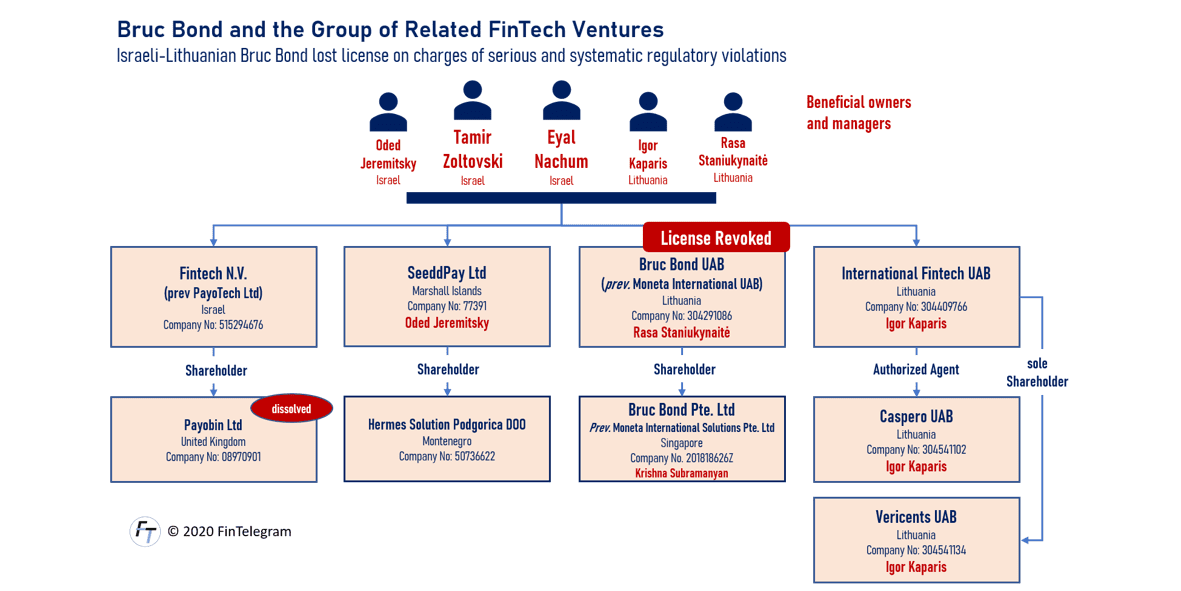The Bank of Lithuania has revoked the license of Bruc Bond UAB (previously Moneta International UAB), the regulator announced on April 22, 2020.
FinTelegram has often pointed out that Eyal Nachum and his Bruc Bond UAB (formerly Moneta International UAB) was involved in many broker scams as payment processors. Eyal Nachum and his partner Tamir Zoltovski have consistently denied these allegations and have filed a lawsuit in Israel against FinTelegram and its publisher. The lawsuit was not accepted by FinTelegram due to the lack of jurisdiction of the Israeli court (forum non conveniens). Moreover, Eyal Nachum, Bruc Bond, and their lawyers ZP Zioni Pillersdorf Phillip Advocates (ZP Law) provided the Israeli court with false information. At the request of the Bank of Lithuania, FinTelegram provided all necessary and available information for its investigation.
FinTelegram allegations proved
Now the published findings of the FinTelegram researches have proven to be completely correct by the investigation of the Bank of Lithuania. The Lithuanian regulator today announced the revocation of the license of Bruc Bond UAB.
In response to the detected serious and systematic breaches of national legal acts, we have adopted the most severe enforcement measure in the Bank of Lithuania’s arsenal. Due to maladministration, the services provided by the institution exceeded the limits of its licence, the barrier to potential ML/TF risks was insufficient, while the necessary measures for safeguarding customer funds were lacking. With this resolution we send a clear message to market participants and consumers that unwarranted actions taken by payment institutions will not be tolerated,
Bank of Lithuania, statement regarding revocation of Bruc Bond license
The Regulator’s Findings
The results of an investigation conducted showed that Bruc Bond
- held customer funds for a longer period than allowed under the issued license and thus issued electronic money, although it is prohibited to do so without a license authorizing electronic money issuance;
- had been providing incorrect information in its supervisory reports to the Bank of Lithuania;
- seriously and systematically breached the law on the Prevention of Money Laundering and Terrorist Financing with respect to the assessment of ML/TF risks, identification and verification of the customer and the customer’s representative, implementation of international financial sanctions, and adequate staff awareness of AML/CTF requirements.
We will publish a more comprehensive report on Bruc Bond and Eyal Nachum and their group of companies soon.
